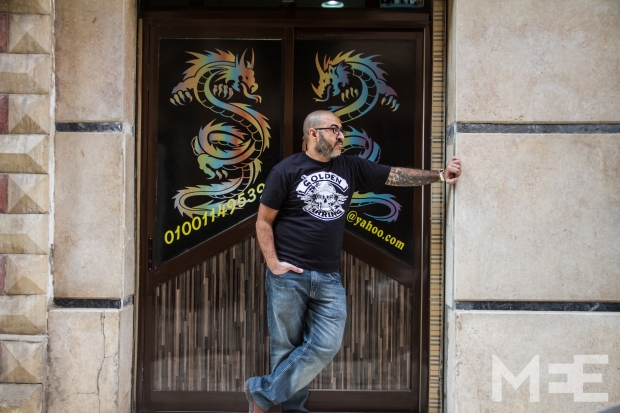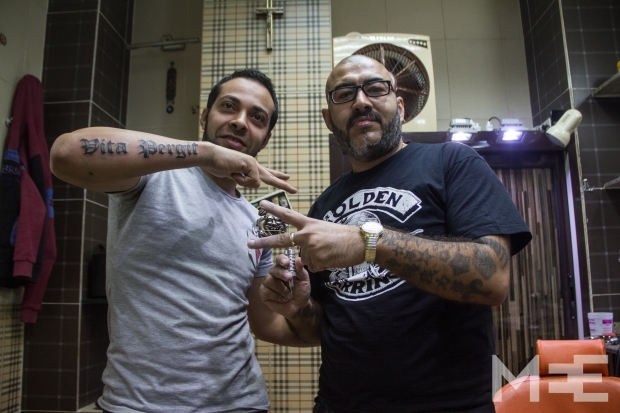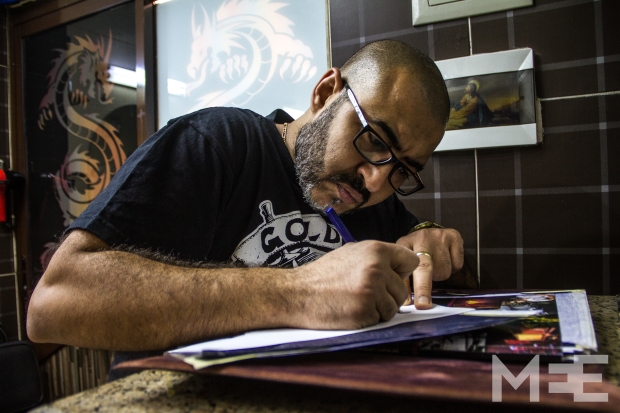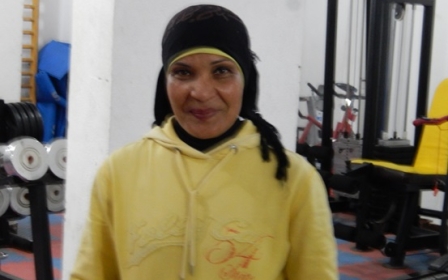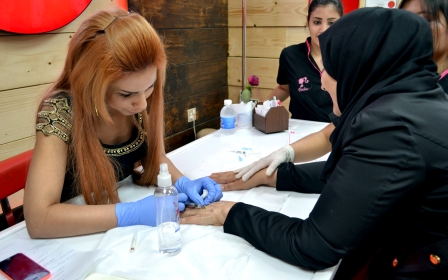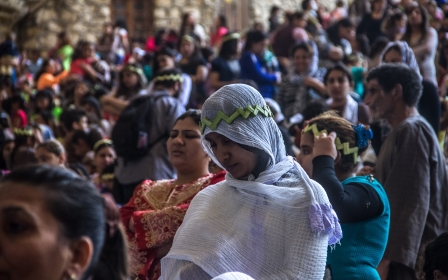The taboo tattoos of Egypt
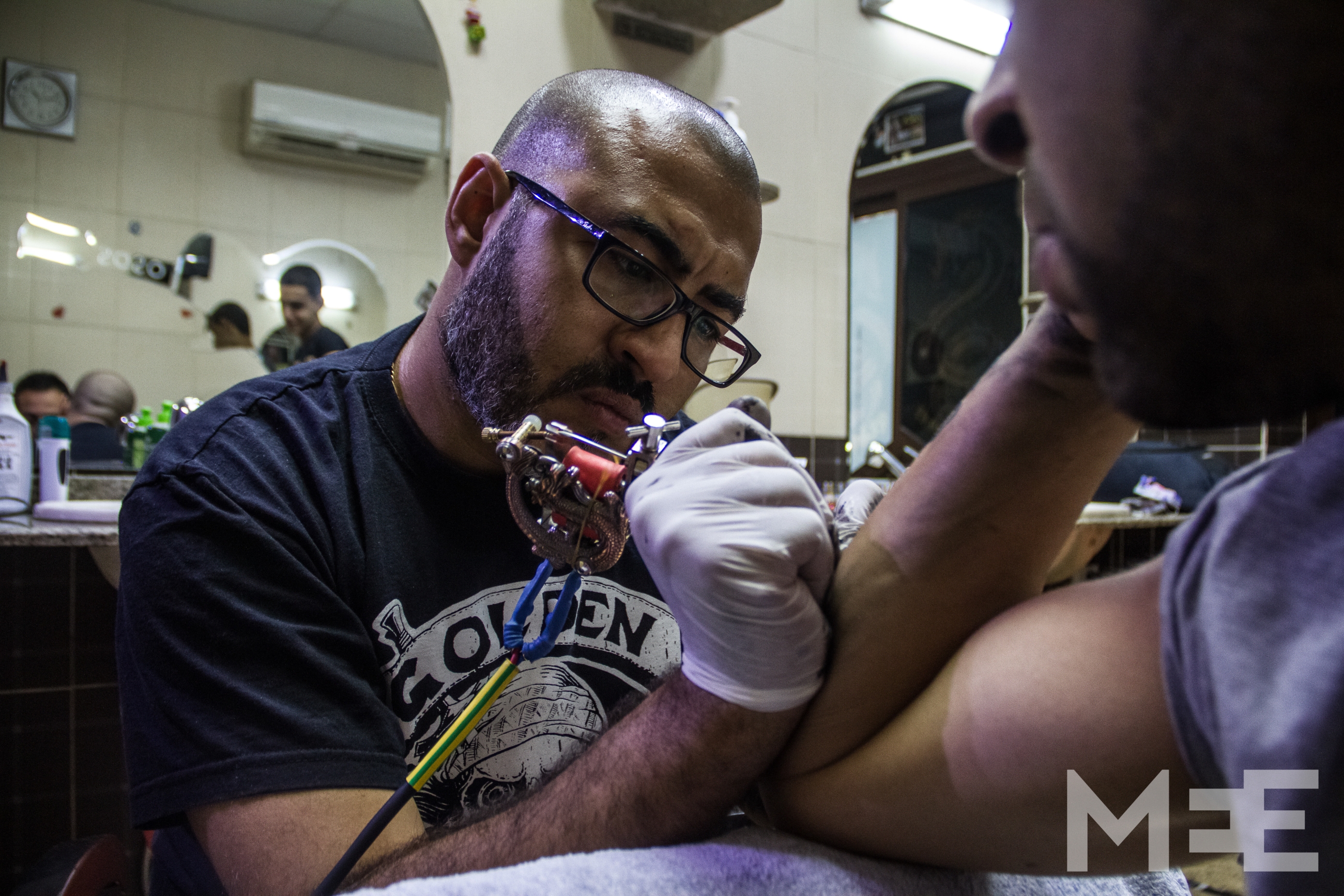
CAIRO - It all started 12 years ago, when Osama Dawood was visiting his family in San Diego, California. It was the first time he had ever seen a tattoo parlour and he was entranced. He became so fascinated by the concept of tattoo art that he extended his stay for five more months to learn how to become a tattoo artist himself.
Dawood came back to Egypt determined to start a tattoo parlour in his own country. But he was faced by the first of many problems: the government refused to give him permission to start the parlour. In fact, the Egyptian government does not even have an official tattoo license to give.
He had to move to Sharm el-Sheikh, where he started working in hotels with the tourists visiting Egypt. Spending time at the beaches he found clients upon whom he could practice his newly acquired tattoo skills. He spent five years there.
"Most of my customers were foreigners. At that time, I talked to many Egyptians who expressed their interest in getting a tattoo, but there were always unseen obstacles and concerns regarding societal dissaproval that hindered them from doing it," Dawood told Middle East Eye. "The very few Egyptians that I did give tattoos to at this time were Egyptians who had lived abroad for a while or who had considerable contact with foreigners at some point in their lives.”
Dawood faced another problem. He tried to have the tattoo inks and some equipment delivered to him from other countries at the airport, but Egyptian customs didn’t approve the ink or the equipment. The Ministry of Health also refused permission, and the Ministry of Interior said his equipment was dangerous.
“It was really ridiculous and frustrating," Dawood said. "The things I ordered were very expensive and cost me a lot, yet I couldn’t get my hands on them.” In order to get around this, Dawood asked various relatives who lived abroad to bring the things he needed when they returned to Egypt, and to tell customs that the items were for personal use. With no alternatives, he has continued to bring in supplies this way.
Dawood said he would have continued working in Sharm el-Sheikh for the rest of his life, but then came the 25 January revolution that overthrew Hosni Mubarak, and all the tourists in Egypt fled back to their countries. Dawood was effectively jobless, but by then he thought of a loophole to help him open his parlour. He would get a coiffure “barber” license, and through this finally get his tattoo parlour up and running. Nobody in the government would know, he figured, since generally nobody ever looks into such things in Egypt. Dawood didn’t like the idea, but it was his only way to get the parlour off the ground.
He started a Facebook page, and after the parlour's opening in the middle-class Shoubra neighbourhood of Cairo, he experienced a pleasant surprise; to his amazement, Egyptian customers flooded to his shop.
“The revolution did something to the dominating set of social and religious ideas; the freedom young men felt was a stimulus to them to experience new things, and to do things they were afraid of doing before because of society, parents or religion.”
MEE asked how most people deal with Dawood and his job, considering the fact that for the Muslim majority, tattoos are forbidden by the laws of their religion. He replied: “About 80 percent of the youth who come to my parlour are Muslims; it is forbidden in Islam because you can’t remove it. Twenty years ago, there was no way to remove the tattoo, but now you can easily remove it by laser, and as long as you can remove it, many Muslim people and sheikhs think it is okay to have a tattoo right now.”
But this doesn’t lessen the fact that there are people who look differently at Dawood when they see the tattoos on his arms, or when they learn about his job and he has been subjected to abuse.
“There was this guy who managed to get my phone number from my Facebook page, and he kept ringing me but whenever I answered him, he would start calling me bad names. He kept doing this for about a week, causing me a lot of problems with my customers, as many of them couldn’t reach me.” Dawood also said he was ambushed by a "fanatical sheikh" who lives near the parlour.
“I parked my car in front of the parlour, while I was getting out, he attacked me from behind, saying that I am cursed for doing what I do. People from the street helped me and stopped him, but I had to file a report against him at the police station.”
Before going to meet Dawood, MEE discovered that he is the only successful Egyptian to offer tattoos professionally in Cairo. Asked why this was, he said: “I try to upgrade my equipment frequently. The fact that I do my work here at the parlour - and not like most of the others, who do it in the back rooms - makes people trust me more, and also I’ve been doing this for about 10 years. Many people know me and this helps me getting more customers.”
One such customer is Mina Reffat, a young man in his mid-20s who agreed to be photographed while having a tattoo done. Asked why he was getting the tattoo, he told MEE: “I think it is a way of differentiating myself from other people. This is my second tattoo; my first was a religious one to show my pride of Christianity, this one is written in Latin, and means 'Life goes on.' I am hoping to do a tattoo that covers the whole of my right arm in the future.”
Another customer, Dalia Ahmed, is a 31-year old married woman who was in a car accident six months ago, leaving her with a big scar on her back. She came to Dawood to do a big cover-up tattoo - a red flower - on her back. She told MEE: “Most of the people I meet think that tattoo is a way to make yourself ugly, to lacerate yourself, but in fact it is a way to beautify yourself. I didn’t like the way I looked after the accident, and I noticed that my husband also didn’t like the way I looked. With the big flower on my back I feel beautiful and confident again.”
Eighteen-year-old Ahmed Meghary came to Dawood for a small tattoo on his finger. Asked why he was getting such a small tattoo, Meghary said: "I don't know what the reaction of my parents will be when they see the tattoo, so I am going to start with a small one. If they don't get angry, I will do a bigger one."
Meanwhile, Seif Mohamed, 23, is more experienced with tattoos. He has had two tattoos done by Dawood, and is now getting a third. Mohamed comes from a wealthy family, and travels a lot. He recently came back from Holland, where he tried marijuana for the first time. He liked it so much that he asked Dawood to make his third tattoo a marijuana leaf.
Mohamed told MEE about an incident that happened when he was riding the metro. "I was wearing a T-shirt without sleeves, and this guy kept looking at me, staring at my arm, then he approached and asked what is this thing on my arm? I told him it was a tattoo. He kept talking to me telling me that it is 'haram' [forbidden] and I am cursed, and I should remove it at once. I ended up getting off the metro without reaching my destination just to get rid of this guy!"
Despite, the taboo nature of his work, Dawood told MEE he is determined to carry on, despite the obstacles.
“I realise that there many difficulties ahead of me, but I also believe that what I do is a real art form, and I will keep doing it, hoping that our culture as Egyptians will evolve and develop till we can finally understand and coexist with those who are different.”
Middle East Eye propose une couverture et une analyse indépendantes et incomparables du Moyen-Orient, de l’Afrique du Nord et d’autres régions du monde. Pour en savoir plus sur la reprise de ce contenu et les frais qui s’appliquent, veuillez remplir ce formulaire [en anglais]. Pour en savoir plus sur MEE, cliquez ici [en anglais].


